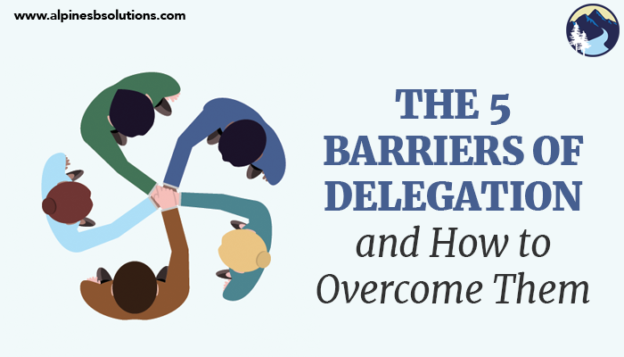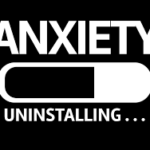Celebrities can (sometimes) do more than entertain. Occasionally, their stories and struggles can offer us insight as we work to build our own dynasties in our niche. Looking at their shortfalls and success can help us gain valuable insight on what it truly means to be a leader.
- Oprah Winfrey – Leaders need patience
Oprah Winfrey is one of the most successful rags-to-riches stories of our time. Born into poverty, she overcame personal challenges and found her first media job at age 19. It took several years before she launched her talk show, and several more before her own network found success. When she created her network, everything was in place for immense and rather immediate success. She had the masses of fans. She had the industry experience. She was highly networked. She could afford to help finance it. But the network took years to take off. Even Oprah Winfrey, a queen in her industry, needed time to make things happen.
As you lead your organization, try not to get too discouraged over setbacks. Perseverance is important to getting your company where you need to go. Your staff looks to you for guidance and encouragement. Lead the way with a determined enthusiasm and dedication to working to get your company where it needs to go.
- Bear Grylls – Leaders encourage risk taking
 Bear Grylls is a well-known adventurer, writer, and TV personality. In his show “Running Wild with Bear Grylls” he takes a new celebrity on an adventure, encountering obstacles from crocodile infested waters to repelling down cliffs. As he coaches celebrities, he encourages them to take calculated risks. It’s not a throw caution to the wind and be reckless strategy, but rather a “nothing risked nothing gained” perspective. He works with the celebrity, understanding their strengths and limitations, and then encourages them to push their boundaries. He serves as their safety net, ready to step in as needed. But, his focus in on getting them to stretch their limits.
Bear Grylls is a well-known adventurer, writer, and TV personality. In his show “Running Wild with Bear Grylls” he takes a new celebrity on an adventure, encountering obstacles from crocodile infested waters to repelling down cliffs. As he coaches celebrities, he encourages them to take calculated risks. It’s not a throw caution to the wind and be reckless strategy, but rather a “nothing risked nothing gained” perspective. He works with the celebrity, understanding their strengths and limitations, and then encourages them to push their boundaries. He serves as their safety net, ready to step in as needed. But, his focus in on getting them to stretch their limits.
Good leaders empower their workers to grow and go beyond their limits. Along the way, they serve as a valuable resource, of course. Good leaders train their employees with all the information they need before giving them the gentle nudge to go off on their own to take calculated risks. Whether you are helping someone survive crocodiles or pitch an unconventional idea, good leaders encourage risk tasking.
- Emma Watson – Leaders manage their own imposter syndrome
Emma Watson is a famous actress, model, and activist. She is wildly successful and talented, but even she is not immune to self-doubts. Watson is one of the many celebrities vocal about their own struggles with imposter syndrome, a frustrating challenge where a highly capable individual doubts their own ability. Often, people with imposter syndrome feel as if they are faking their way through their work or life, just waiting for others to realize they are incompetent. Ironically, it’s those who should be the most confident that struggle with imposter syndrome. Emma Watson speaks often about her own struggles and how she works to manage them.
As a leader, you may experience crippling self-doubt. As an entrepreneur, you get an extra helping of insecurity. So many people are counting on you and at times it can feel like you are beyond your depths. Letting these fears stop you from acting or affect how you work can be damaging to your business and your employees. Proactively managing imposter syndrome helps you be a better leader.
- Vince Lombardi – Leaders show, not shout
 Vince Lombardi is one of the greatest professional football coaches of all time, leading the Green Bay Packers to victory time and time again. You can get lost reading through a collection of his quotes, as each one is an inspirational landmine. When talking about coaching, he famously said “they call it coaching, but it is teaching. You do not just tell them…you show them the reasons.” Lombardi took the time to explain to his players the reasoning behind his choices and strategies, rather than simply yelling orders. This, arguably, helped improve the coach-player relationship, team cohesion, and the players’ motivation (especially when things got rough).
Vince Lombardi is one of the greatest professional football coaches of all time, leading the Green Bay Packers to victory time and time again. You can get lost reading through a collection of his quotes, as each one is an inspirational landmine. When talking about coaching, he famously said “they call it coaching, but it is teaching. You do not just tell them…you show them the reasons.” Lombardi took the time to explain to his players the reasoning behind his choices and strategies, rather than simply yelling orders. This, arguably, helped improve the coach-player relationship, team cohesion, and the players’ motivation (especially when things got rough).
- Lana Del Rey – If It’s Not Working, Reinvent Your Brand
Before she found fame as a 1960s-inspired sultry throwback singer, Lana Del Rey was a prep-school graduate from upstate New York named Elizabeth “Lizzy” Grant. She started her career with her given name, blonde hair, no shtick and an acoustic, folksy vibe. But, that wasn’t working. So, she reinvented her career under the stage name Lana Del Rey, dyed her hair, adopted the 1960s makeup and deep voice and had a breakthrough.
If your business isn’t standing out, consider going from Lizzy to Lana — give your location, products or services a makeover and use a bold, high-styled appeal to set yourself apart in a crowded marketplace.
- Miley Cyrus – Love Your Customers and They Will Love You
 Miley Cyrus loves her fans so much that she has nicknamed them “Smilers” and makes sure to acknowledge them often, whether on tour or on social media. This is a great strategy for your business — it is much easier to market more products and services to your existing customers that are already raving fans than to try to find new ones.
Miley Cyrus loves her fans so much that she has nicknamed them “Smilers” and makes sure to acknowledge them often, whether on tour or on social media. This is a great strategy for your business — it is much easier to market more products and services to your existing customers that are already raving fans than to try to find new ones.
So, make sure your customers know that they are loved and keep telling them. Doing this will create customers who will buy more from you and advocate for you — loyalty is the way to go.
- Justin Bieber – Go Niche
Many of us don’t understand the appeal of Justin Bieber (make that really don’t understand the appeal…), but it doesn’t matter because we aren’t his niche. He appeals to tween and teen girls. They love him and he knows how to leverage that, without worrying what everyone else thinks of him.
Your business can borrow from the Biebs by focusing on a very distinct target market and knowing what that market cares about. I remember a very successful shoe store in Chicago that employed a similar strategy. They had only really attractive young men working there, who flattered every female customer incessantly as they tried on shoes. That store did very well. Once you are solid in knowing your target market, find a hook that has a strong appeal to them.
- The Kardashians – Strike While the Iron Is Hot
 To say that the Kardashians have not been shy about exploiting their brands is like saying that fire is kind of hot. The Kardashian girls endorse clothing, makeup, perfume and more. What they know is that no business cycle lasts forever, so they are not shy about maximizing their potential while they can.
To say that the Kardashians have not been shy about exploiting their brands is like saying that fire is kind of hot. The Kardashian girls endorse clothing, makeup, perfume and more. What they know is that no business cycle lasts forever, so they are not shy about maximizing their potential while they can.
The same goes for your company. Business cycles are shortening, so don’t be afraid to make the most of your opportunities while you are hot.
- Lindsay Lohan (And Some Other New Celebrity Just About Every Day) – Even a Good Brand Can Become Tarnished
Even if you have something valuable to offer, if you are a jerk, eventually folks won’t want to do business with you. Alec Baldwin, Tiger Woods and Lindsay Lohan are just some of the celebrities that have learned this the hard way.
- Geraldo Rivera – Future success cannot be built on past accomplishments.
 Watching Geraldo Rivera bomb five tasks in a row was amusing and sad. Frankly, Geraldo’s ideas were good — 10 years ago, but did not resonate with company executives who were looking for forward thinking, innovative ideas that appeal to today’s consumers. Not to detract from his achievements, but Mr. Rivera thought that his past journalistic success would lead his team to winning each challenge; it did not. In fact, many younger people do not even know who he is. Geraldo is a forceful, strong-willed personality who does not take “no” for an answer. Maybe that’s the reason behind his success; however, when working with or leading a t-e-a-m, there has to be collaboration. Most of Geraldo’s contributions focused on “I am an award winning journalist,” “I’m Geraldo Rivera.” “I should be the one in front of the camera.” The recurring theme was “I,” a terrible mistake for a leader, manager, or anyone in authority to focus all the attention on himself or herself without having any regard for team members’ input.
Watching Geraldo Rivera bomb five tasks in a row was amusing and sad. Frankly, Geraldo’s ideas were good — 10 years ago, but did not resonate with company executives who were looking for forward thinking, innovative ideas that appeal to today’s consumers. Not to detract from his achievements, but Mr. Rivera thought that his past journalistic success would lead his team to winning each challenge; it did not. In fact, many younger people do not even know who he is. Geraldo is a forceful, strong-willed personality who does not take “no” for an answer. Maybe that’s the reason behind his success; however, when working with or leading a t-e-a-m, there has to be collaboration. Most of Geraldo’s contributions focused on “I am an award winning journalist,” “I’m Geraldo Rivera.” “I should be the one in front of the camera.” The recurring theme was “I,” a terrible mistake for a leader, manager, or anyone in authority to focus all the attention on himself or herself without having any regard for team members’ input.
You can’t get complacent in your business — you need to continually work to earn the trust and respect of your vendors, clients and employees. If you don’t, you may find opportunities drying up, or altogether disappearing.
Good leaders do more than order their employees around. Taking the time to explain the mindset behind your decisions can leave an impression on your employees. It shows you value their opinion and understanding enough that you would spend the time talking to them. It helps them understand the values behind your decisions (i.e. I really value this client relationship, so I want to go overboard in correcting their customer service issue). It opens up dialogue so employees can feel free to express their confusion or differing perspective. Showing your employees the reasons behind what you are asking them to do or the reasons for your choices can help strengthen your business.
Not all celebrities are good leaders. But some stand above the crowd, offering unique ways to lead that translate well into business. As you lead your organization, think about ways you can implement these tactics to be a more effective leader.




 A few decades ago, few people would have predicted that one of the top media companies in the US owns very little physical inventory or that one of the top taxi services owns no vehicles. But the founders of Netflix and Uber forever changed their industries with their creative thinking.
A few decades ago, few people would have predicted that one of the top media companies in the US owns very little physical inventory or that one of the top taxi services owns no vehicles. But the founders of Netflix and Uber forever changed their industries with their creative thinking. True. Entrepreneurs who overwork themselves and fail to regularly practice self-care end up prematurely aging. Just like people in other lines of work with those same poor habits prematurely age.
True. Entrepreneurs who overwork themselves and fail to regularly practice self-care end up prematurely aging. Just like people in other lines of work with those same poor habits prematurely age.
 Organization is a business owner’s best friend. It’s all too easy to stockpile a mishmash of files and documents scattered all over your computer and desk. Find a system that works for you and, once and for all, implement it. The few hours or days it takes to really organize everything will save you so much time down the road.
Organization is a business owner’s best friend. It’s all too easy to stockpile a mishmash of files and documents scattered all over your computer and desk. Find a system that works for you and, once and for all, implement it. The few hours or days it takes to really organize everything will save you so much time down the road. The advantage of new tools is they can save you time and revolutionize how you do business. The disadvantage of new tools is they often take time to research, test out, and make a decision to implement or not. When your business is busy, you struggle justifying the time it takes to try out different options.
The advantage of new tools is they can save you time and revolutionize how you do business. The disadvantage of new tools is they often take time to research, test out, and make a decision to implement or not. When your business is busy, you struggle justifying the time it takes to try out different options.
 I have tried many task/project manager tools and Asana is hands down THE BEST. They have a free basic plan that works well for small teams, but depending on the features you are after and the tasks you encounter daily, one of the upgraded plan options may work better for your team.
I have tried many task/project manager tools and Asana is hands down THE BEST. They have a free basic plan that works well for small teams, but depending on the features you are after and the tasks you encounter daily, one of the upgraded plan options may work better for your team. Ever come up with an idea, but everyone’s’ calendars are already packed for the day? Plus, haven’t we established how much we all hate meetings? Slack is an amazing tool to help you stay in touch with your team, it’s a simple app without a lot of pizazz, but packs a punch in the productivity timeline.
Ever come up with an idea, but everyone’s’ calendars are already packed for the day? Plus, haven’t we established how much we all hate meetings? Slack is an amazing tool to help you stay in touch with your team, it’s a simple app without a lot of pizazz, but packs a punch in the productivity timeline. Running a special? Offering a new product or service? Whatever it may be, you can easily create targeted lead pages and track their results without redesigning your website. With over 160 plus free mobile-responsive templates, you can easily create multiple versions of pages to optimize your landing page success rate. Another great thing about Leadpages is that you can easily integrate it with over 40 tools and platforms!
Running a special? Offering a new product or service? Whatever it may be, you can easily create targeted lead pages and track their results without redesigning your website. With over 160 plus free mobile-responsive templates, you can easily create multiple versions of pages to optimize your landing page success rate. Another great thing about Leadpages is that you can easily integrate it with over 40 tools and platforms!
 We all know that time is money, and we are always looking for ways to save time and be more efficient in what we do. Those voices in your head are telling you that you don’t have the time to adequately explain or teach the skills for the task at hand to your team member. The good news is, delegating task actually
We all know that time is money, and we are always looking for ways to save time and be more efficient in what we do. Those voices in your head are telling you that you don’t have the time to adequately explain or teach the skills for the task at hand to your team member. The good news is, delegating task actually  Another barrier business owners may come across is the fear that you are going to train yourself out of a job. Or maybe there’s a reoccurring task that you enjoy but you offloaded it to a team member. This is a great problem to have! Now that you have less on your plate you can move to a higher position, take on more challenging tasks, or focus on those business development plans you never had the time for. You will also be rewarded by seeing others succeed because of your coaching.
Another barrier business owners may come across is the fear that you are going to train yourself out of a job. Or maybe there’s a reoccurring task that you enjoy but you offloaded it to a team member. This is a great problem to have! Now that you have less on your plate you can move to a higher position, take on more challenging tasks, or focus on those business development plans you never had the time for. You will also be rewarded by seeing others succeed because of your coaching. Asking for help sucks, and you might feel like it’s a sign of weakness, when really it is a sign of strength and trust. We are only human, and we can’t do everything by ourselves. Often it is fear that fuels this anxiety: Fear of over-stepping. Fear of appearing too needy. Fear of imposing. Fear of revealing our struggle and having people realize we don’t have it all together after all. When we support other people to be more
Asking for help sucks, and you might feel like it’s a sign of weakness, when really it is a sign of strength and trust. We are only human, and we can’t do everything by ourselves. Often it is fear that fuels this anxiety: Fear of over-stepping. Fear of appearing too needy. Fear of imposing. Fear of revealing our struggle and having people realize we don’t have it all together after all. When we support other people to be more 
 The idea of the comfort zone dates back to 1908, with a classic psychology experiment by Robert M. Yerkes and John D. Dodson. They found that a state of relative comfort created a steady level of performance.
The idea of the comfort zone dates back to 1908, with a classic psychology experiment by Robert M. Yerkes and John D. Dodson. They found that a state of relative comfort created a steady level of performance. So we learned that optimal anxiety is that place where your mental productivity and performance reach their peak. What’s the incentive to pushing ourselves to that next level? Here is what you get once you’re able to step outside of your comfort zone:
So we learned that optimal anxiety is that place where your mental productivity and performance reach their peak. What’s the incentive to pushing ourselves to that next level? Here is what you get once you’re able to step outside of your comfort zone:
 Decide what you want. Consider what you want to achieve. Set S.M.A.R.T goals that motivate you and write them down to make them feel tangible. By setting Specific, Measurable, Attainable, Relevant and Time-bound goals you can measure and take pride in the achievement of those goals. You will be able to see the forward progress in what might otherwise feel like a long pointless grind.
Decide what you want. Consider what you want to achieve. Set S.M.A.R.T goals that motivate you and write them down to make them feel tangible. By setting Specific, Measurable, Attainable, Relevant and Time-bound goals you can measure and take pride in the achievement of those goals. You will be able to see the forward progress in what might otherwise feel like a long pointless grind. Doing things carelessly is the mother of everything that can go wrong. When you want your project to succeed, you invest yourself in it fully. “The difference between ‘involvement’ and ‘commitment’ is like an eggs-and-ham breakfast: the chicken was ‘involved’ – the pig was ‘
Doing things carelessly is the mother of everything that can go wrong. When you want your project to succeed, you invest yourself in it fully. “The difference between ‘involvement’ and ‘commitment’ is like an eggs-and-ham breakfast: the chicken was ‘involved’ – the pig was ‘ Be determined and most important, consistent. Fully dedicate yourself to your goal. Consistency is about building small empowering habits and rituals that you partake in every single day that keep you focused on your highest priorities and goals. It essentially comes down to your ability to hold yourself accountable for the daily choices you make, with no excuses and no complaints. You and you alone are accountable for what you do and what you fail to do. All responsibility lies solely in your hands.
Be determined and most important, consistent. Fully dedicate yourself to your goal. Consistency is about building small empowering habits and rituals that you partake in every single day that keep you focused on your highest priorities and goals. It essentially comes down to your ability to hold yourself accountable for the daily choices you make, with no excuses and no complaints. You and you alone are accountable for what you do and what you fail to do. All responsibility lies solely in your hands.
 Growth Mindset
Growth Mindset Fixed Mindset
Fixed Mindset Whether you’re aware of it or not, you keep a running account of what’s happening, what it means, and what you should so. Our minds are constantly monitoring and interpreting. That’s just how we stay on track. Mindset frames the running account of what is taking place. It guides the whole interpretation process.
Whether you’re aware of it or not, you keep a running account of what’s happening, what it means, and what you should so. Our minds are constantly monitoring and interpreting. That’s just how we stay on track. Mindset frames the running account of what is taking place. It guides the whole interpretation process. Changing from a fixed mindset to a growth mindset is not like surgery; you can’t remove a fixed mindset and replace it with a growth mindset. You must work on nurturing a positive, growth mindset. These are tips from
Changing from a fixed mindset to a growth mindset is not like surgery; you can’t remove a fixed mindset and replace it with a growth mindset. You must work on nurturing a positive, growth mindset. These are tips from
 Burnout feels awful. Awful enough to be a catalyst for promoting positive change. It can force you to change poor work habits (like working through lunch). Or cause you to reassess your priorities (like too much office time and not enough family time). Or even make you re-evaluate whether your current job or projects are what you should be doing.
Burnout feels awful. Awful enough to be a catalyst for promoting positive change. It can force you to change poor work habits (like working through lunch). Or cause you to reassess your priorities (like too much office time and not enough family time). Or even make you re-evaluate whether your current job or projects are what you should be doing. Aromatherapy involves inhaling essential oils (liquids from natural extracts like flowers and fruits). The scent interacts with our body, helping to cause benefits like improving your focus and stimulating your brain. One research study found that lavender and rosemary reduces cortisol levels (the hormone released in fight or flight mode that can be a big mental drain). Smelling certain oils can help give you the jolt of energy you need in a healthier way than turning to excessive caffeine.
Aromatherapy involves inhaling essential oils (liquids from natural extracts like flowers and fruits). The scent interacts with our body, helping to cause benefits like improving your focus and stimulating your brain. One research study found that lavender and rosemary reduces cortisol levels (the hormone released in fight or flight mode that can be a big mental drain). Smelling certain oils can help give you the jolt of energy you need in a healthier way than turning to excessive caffeine. Sometimes just writing down everything you need can help you
Sometimes just writing down everything you need can help you 
 Imposter syndrome is a term often thrown around and splashed in click baiting headlines, leaving people confused as to what it actually is (and whether they’re affected by it).
Imposter syndrome is a term often thrown around and splashed in click baiting headlines, leaving people confused as to what it actually is (and whether they’re affected by it). Imposter syndrome is the little troll on our shoulder feeding us lies about our potential. It keeps us from being the best
Imposter syndrome is the little troll on our shoulder feeding us lies about our potential. It keeps us from being the best  It’s okay to celebrate and take pride in your success. In fact, it’s important for your confidence’s sake to view your success accurately. (That means recognizing the role your ability and
It’s okay to celebrate and take pride in your success. In fact, it’s important for your confidence’s sake to view your success accurately. (That means recognizing the role your ability and  a list of more achievements to feel more confident. But, the problem with imposter syndrome isn’t a lack of success (since it happens with people who are very successful). It’s not being able to internalize accurately those successes. Imposter syndrome won’t go away with more success.
a list of more achievements to feel more confident. But, the problem with imposter syndrome isn’t a lack of success (since it happens with people who are very successful). It’s not being able to internalize accurately those successes. Imposter syndrome won’t go away with more success.